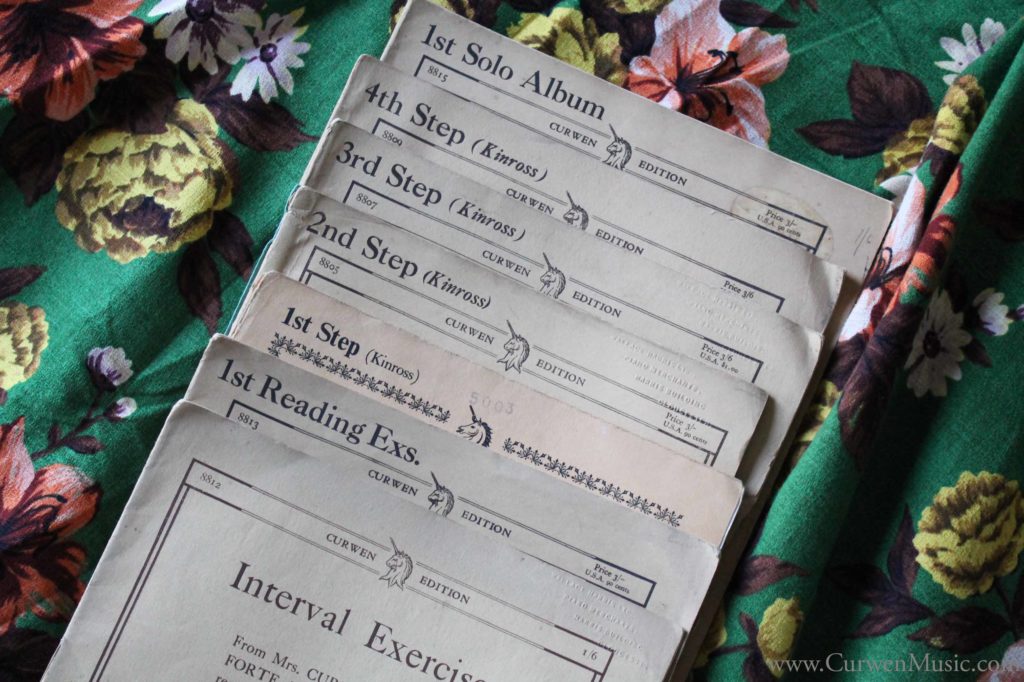Mrs. Curwen has specific instruction for how to start a beginner piano student. She lays a wide and broad foundation for the young student.
She lays out five lessons that she refers to as the Preliminary Course. The first stage in a piano student’s development precedes the use of symbols. Her preliminary course is almost entirely orally taught. The child needs to investigate and discover for himself the elementary facts of music.
“This he does by listening, observing with his ears, signs being introduced gradually as the things symbolized are realized.” (page 32, 31st edition.)
In other words, the first five lessons for the student do not include simple piano books or looking at music at all. The first five lessons are taught exclusively orally. These are all listed under Preliminary Lessons on this website.

Much of Mrs. Curwen’s method is based upon teaching students individual principles. For example, in the preliminary courses, she teaches pitch and time separate. Not until the child is ready to combine these two principles in his head is he ready to read music.
How long do her preliminary courses take?
She says it varies by student. An older child will likely progress faster than a younger child. If the child has previous musical experience, he may not take as long to complete the preliminary course one without musical experience.
It also depends if a child is able to have a short lesson every day or one long lesson a week. She mentions that a bright child with daily lessons may finish the course in a few weeks, but a child dependent on a lesson once a week from a teacher may take months or a whole term.
“‘Three months without playing a tune!’ Possibly; and yet during that time we can carry out our principle of keeping theory and practice side by side: and we can keep up the pupil’s interest, because all the time he is listening, comparing, judging, doing; using his wits, in fact, the most interesting of all occupations to a child of seven.” (page 33, 31st edition.)
What is the pace of lessons for a beginner piano student?
There are a few different scenarios to take into consideration. She first says that a child will likely do better with a daily short lesson instead of a longer weekly one.
If you are a homeschool mom teaching your own children, have a short lesson each day touching on a separate topic each day. One day address the concept of pitch. The next day talking about time or rhythm. Mrs. Curwen specifically advises doing hand training every day.
If you are a piano teacher visiting a home weekly or having children coming into your home, she recommends having the mom come to the lesson too.
She says,
“But very excellent results have been obtained when a visiting teacher has given a weekly lesson of one hour, the homework being superintended by mother or governess, who must be present at the lesson if her assistance is to be of any use.”
Following this statement, she mentions again how a beginner student’s progress will be very slow without the active participation of the mother with the practicing.
The practical question at hand is: What is covered in the Preliminary Courses?
I’m glad you asked because that is what I will be covering next in Lesson 1.
